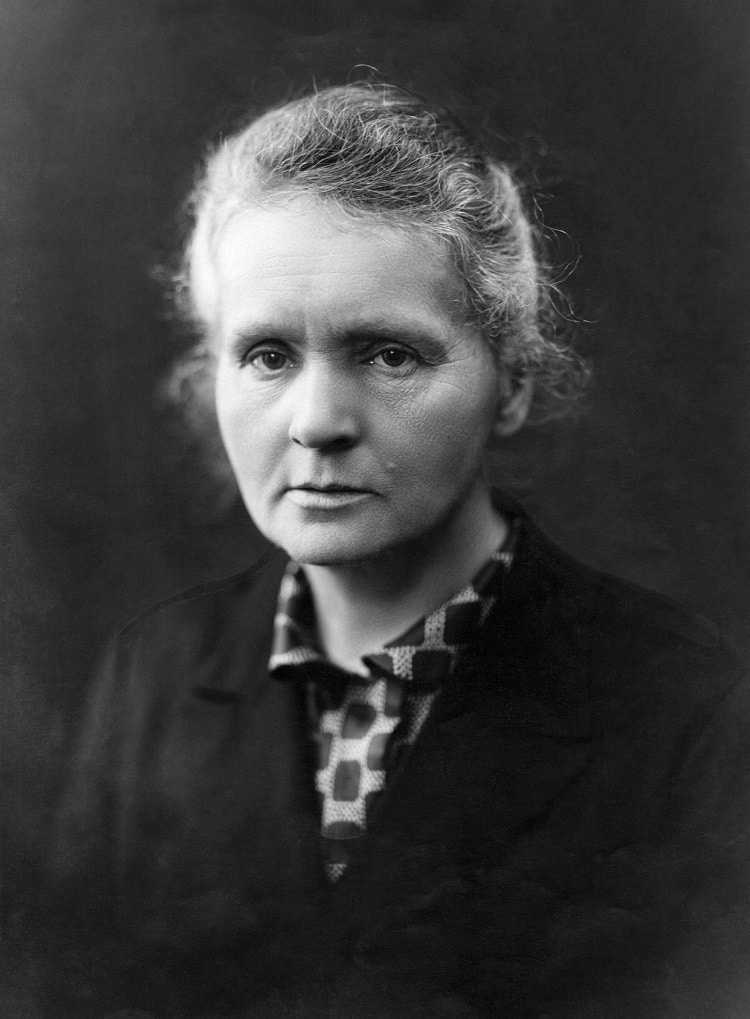Marie Skłodowska-Curie (7 November 1867 – 4 July 1934) was an Polish and naturalized-French physicist and chemist. In 1903, Marie Skłodowska-Curie was awarded the Nobel Prize in Physics.
Life and Career
Marie Skłodowska-Curie was born on 7 November 1867, in Warsaw, Poland.
Marie Skłodowska attended the Sorbonne in Paris, where she studied physics, chemistry, and mathematics. She met Pierre Curie, a fellow scientist, and they eventually married in 1895.
Marie’s groundbreaking research focused on radioactivity and the discovery of two new elements, polonium and radium. Her work laid the foundation for modern nuclear physics. She coined the term “radioactivity” and made significant contributions to the understanding of radioactive decay.
Marie Skłodowska-Curie passed away on 4 July 1934, in Passy, France.
Award and Legacy
Marie Skłodowska-Curie received two Nobel Prizes during her lifetime. She was the first woman to win a Nobel Prize and remains the only person to win Nobel Prizes in two different scientific fields. In 1903, she shared the Nobel Prize in Physics with Pierre Curie and Henri Becquerel for their groundbreaking work on radioactivity. In 1911, she won the Nobel Prize in Chemistry for her discovery of radium and polonium, making her the first person to win Nobel Prizes in two different sciences.
Marie Curie’s legacy is profound and enduring. Her discoveries paved the way for developments in nuclear physics and medicine, leading to advancements in cancer treatment and diagnostics. Her determination to overcome gender barriers in science has also inspired countless individuals, particularly women, to pursue careers in STEM fields. The Marie Curie Actions, a part of the European Union’s research and innovation funding program, are named in her honor.

